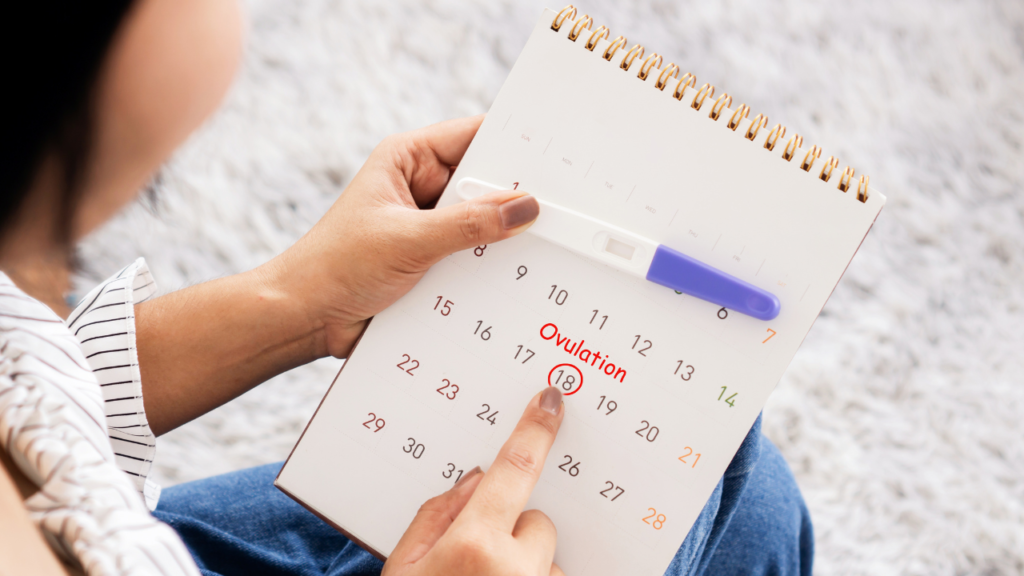
Mothers have many opportunities to invest in their own or their child’s health and well-being before starting a family, during pregnancy, and immediately after birth. These investments include a prenatal workup to make sure the mother’s nutrients are in good reserve, and hormones are adequate for energy, sleep, and blood sugar regulation, in order to have a much higher chance of a smooth pregnancy and delivery and post-natal period.
They will include doing lab tests, taking prenatal prenatal vitamins, making dietary changes, and learning how to prepare for and what to do in each trimester of pregnancy. Work with your naturopathic doctor and join the Confident Hormone Club, to get a treatment plan to support your care vitamins. To know whether prenatal vitamins without being pregnant are beneficial or not read the article.
The naturopathic doctors at Make Care Health can help if you want to get pregnant or plan for it. By adopting healthy changes, you can implement many things to ensure you and your baby stay safe and healthy before getting pregnant. Typically we recommend working with us for 4-6 months prior to beginning to try to conceive, to optimize your chance of getting pregnant and getting pregnant with a good quality egg. If you are suffering from low libido sex, then it will be difficult for you to conceive.
How does a naturopathic doctor help you to plan pregnancy?
Our naturopathic doctor supports your fertility using a holistic and natural approach, that incorporates dietary guidance and healthy food choices to enhance your egg & sperm quality, and nutrients to take to supplement fertility processes. They also do some tests and health interviews to make sure all areas of your body’s health are sufficient to maximize a healthy successful pregnancy.
For women with conditions like PCOS, which chronically causes higher rates of miscarriage or delayed chances of conceiving, we will work with you to support your body through to conception. We recommend both partners work with a naturopathic doctor separately, to provide a comprehensive approach to improving egg and sperm quality and chances of fertility.
How to Prepare for Pregnancy?
Our team at Make Care Health uses holistic solutions to balance hormones in your body to regulate periods and enhance ovulation(egg and sperm quality). They recommend specific vitamins, minerals, or herbal supplements during preconception.
They use unique treatments, lifestyle modifications, exercise routines, and sleep habits, integrating alternative therapies like acupuncture and herbal medicine. If you have any health problems that could affect getting pregnant, they’ll look into those, too, like issues with your thyroid or PCOS. Here are some helpful tips to get ready for Pregnancy:
- Avoid alcohol when trying to conceive. It may affect fertility.
- Stop smoking as it reduces fertility both in women and men.
- To maintain stress and a healthy weight, develop the habit of regular exercise.
- Add folic acid supplements to your diet, as it is essential for the growth of the neural tube in the fetus.
What are prenatal vitamins?
Prenatal vitamins are the supplements you need before and during your pregnancy that contain required nutrients, based on scientific peer-reviewed evidence, that support conception, and fetal development, and prevent symptoms during pregnancy with the mother. Folic acid is required and works like a protector for your baby’s brain and spinal cord. Iron helps to grow and make blood for your baby, preventing anemia. After the baby is born, breastfeeding is good for the infant’s health and possibly increases neurodevelopment.
Prenatal vitamins are good friends for moms-to-be and their babies because they contain more calcium and iron than regular multivitamins and prevent preeclampsia during pregnancy. They can prevent problems, congenital disabilities, low birth weight, and babies being born too early. The Recommended Dietary Allowance for pregnant women is 27 milligrams of iron daily, while women who aren’t pregnant need 18 milligrams daily.
Usually, this increased amount of iron is found in most prenatal vitamins. Many other prenatal vitamins also contain arachidonic acid, fatty acids, and docosahexaenoic acid, commonly known as DHA. DHA is crucial for a baby’s development; it accumulates in the eyes and brain of the baby, especially during the first trimester of Pregnancy.
During Pregnancy, other essential minerals and vitamins are vitamin D, calcium, choline, Vitamin B, Vitamin C, and omega-3 fatty acids. Ensure you eat a well-balanced diet to give your body nutrients to develop your baby. In our confident hormone club, your personalized diet plan after discussion recommends the right prenatal vitamins for the particular reasons or needs to various people, so you know what to reach for.
Understanding Your Nutritional Needs
Studies recommend eating about 300 extra calories per day during pregnancy. This extra energy will support the growth of the baby and the placenta, as well as the increased metabolism of both the mother and the baby.
However, in the first three months of Pregnancy (the first trimester), you generally don’t need these extra calories, and your energy requirements are similar to when you’re not pregnant. Then, in the second trimester, you need around 340 extra calories per day; in the third trimester, it might be closer to 452 extra calories per day.
Note: The amount of calories you need can vary depending on age, body mass index (BMI), and activity. So, it’s a good idea to talk to your doctor to determine your calorie intake based on these factors.
Can you take prenatal vitamins without being pregnant?

If you are not pregnant, you can take prenatal supplements. which act like a multivitamin and gradually support replenishing nutrients that are depleted, often seen in thinning hair or hair that falls out, weak nails, or low stomach acid. The main difference between regular multivitamins and prenatal vitamins is the amount of iron or folic acid. Adults typically need about 400 mcg of folic acid daily; however, pregnant women or women planning a baby need 400 to 800 micrograms daily.
- If you take too much iron and folic acid, it can be bad for your health. Going beyond these limits can increase the chances of health problems.
- Too much folic acid might worsen some symptoms of vitamin B-12 deficiency.
- Too much iron can affect your zinc levels and make you feel sick, or cause inflammation leaving you fatigued or with joint pain.
- Supplementing with certain forms of iron can also cause stomach issues like loose stools or hard-to-pass stool.
- In most cases, if you eat a healthy, balanced diet, you don’t need to take supplements of iron and folate if you’re a healthy adult who isn’t pregnant.
- Iron and folate are naturally present in many foods. Spinach, for example, is a good source of iron and folate. Some foods, like breakfast cereals, add extra iron and folic acid.
How long after taking prenatal vitamins can you get pregnant?
There isn’t a set time to take particular vitamins before having a baby. But it’s a good idea to begin taking more folic acid about 3 months before you plan to get pregnant. It takes about 90 days for an egg to develop before it is released fully. So, it’s best to ensure your egg is in great shape before you even try to conceive.
Does folic acid help you get pregnant?
According to research, folic acid does not help you to get pregnant, but doctors recommend it while you are trying to get pregnant to have it available for the baby’s development should you conceive and not realize it for the next 2-3 weeks. Continue taking folic acid throughout your pregnancy.
Things to buy when trying to conceive
Some things that can help you when planning for a baby include a special thermometer to measure your body temperature, Ovulation Predictor Kits (OPKs), tools to keep track of your menstrual cycle, resources about fertility, fruits, and vitamins for when you’re pregnant. Berries like blueberries and raspberries contain natural anti-inflammatory phytonutrients and antioxidants that help your body fight off bad things and reduce swelling. Berries also have folate and vitamin C, which can be suitable for the baby growing inside and boost fertility.

